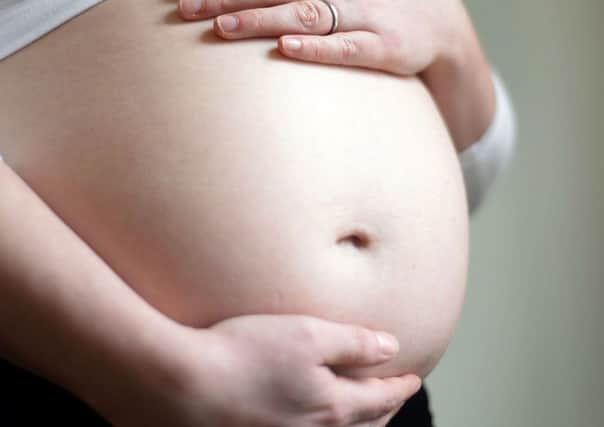Men who experience miscarriage ‘feel invisible’


The Miscarriage Association said partners feel unable to talk about their own feelings of loss and pain during and after losing a child.
More than one in five pregnancies end in miscarriage and a further one in 50 is ectopic – when a fertilised egg implants itself outside the womb – meaning tens of thousands of people may require additional help and support,
Advertisement
Hide AdAdvertisement
Hide AdThe association carried out the research along with academics from University College London (UCL) and is launching a public-awareness campaign called Partners Too today to highlight the issue and direct those affected to sources of help and information.
UCL researchers carried out in-depth interviews with partners, who reacted to the miscarriage with emotions such as sadness (85 per cent), grief (63 per cent) and shock (58 per cent).
The study revealed 58 per cent said they struggled to concentrate, 47 per cent reported sleep problems, and 48 per cent said it affected their work.
However, 46 per cent of partners did not share all of how they were feeling with their wife or girlfriend for fear of saying the wrong thing or causing her further distress, and 22 per cent did not talk about any feelings of loss and pain with their partner.
Ruth Bender Atik, national director of the Miscarriage Association, said: “These findings show that partners often feel invisible during and after miscarriage or ectopic pregnancy.
“Many keep their real feelings hidden from their wife or girlfriend for fear of saying the wrong thing or causing more distress. Friends and family often ask how the woman who has miscarried is coping, but never think to ask her partner.
“All too often the voices of partners go unheard, and their needs go un-met. We want this campaign to highlight their stories, showing partners that they are not alone in their feelings and telling them where they can find support. We want them to be considered rather than sidelined during and after pregnancy loss.”
In the interviews, male partners frequently referred to the expectation that they would be strong for their partners.
Advertisement
Hide AdAdvertisement
Hide AdOne respondent said: “There is certainly a pressure – either perceived or real – that as a male it is important to be strong and supportive for the other person, which can be hard.”
Researcher Dr Petra Boynton, of UCL Medical School, said: “While the emotional impact on women who experience pregnancy loss is well-researched, much less is known about partners.
“We discovered, contrary to the limited existing research, that partners do want to talk about miscarriage. While some described having to fill a role of being ‘strong’ for the woman who miscarried, most really want to talk about their experiences, but struggle to find a way to do this.
“The miscarriage often affected their friendships, work, and physical and mental well-being.”